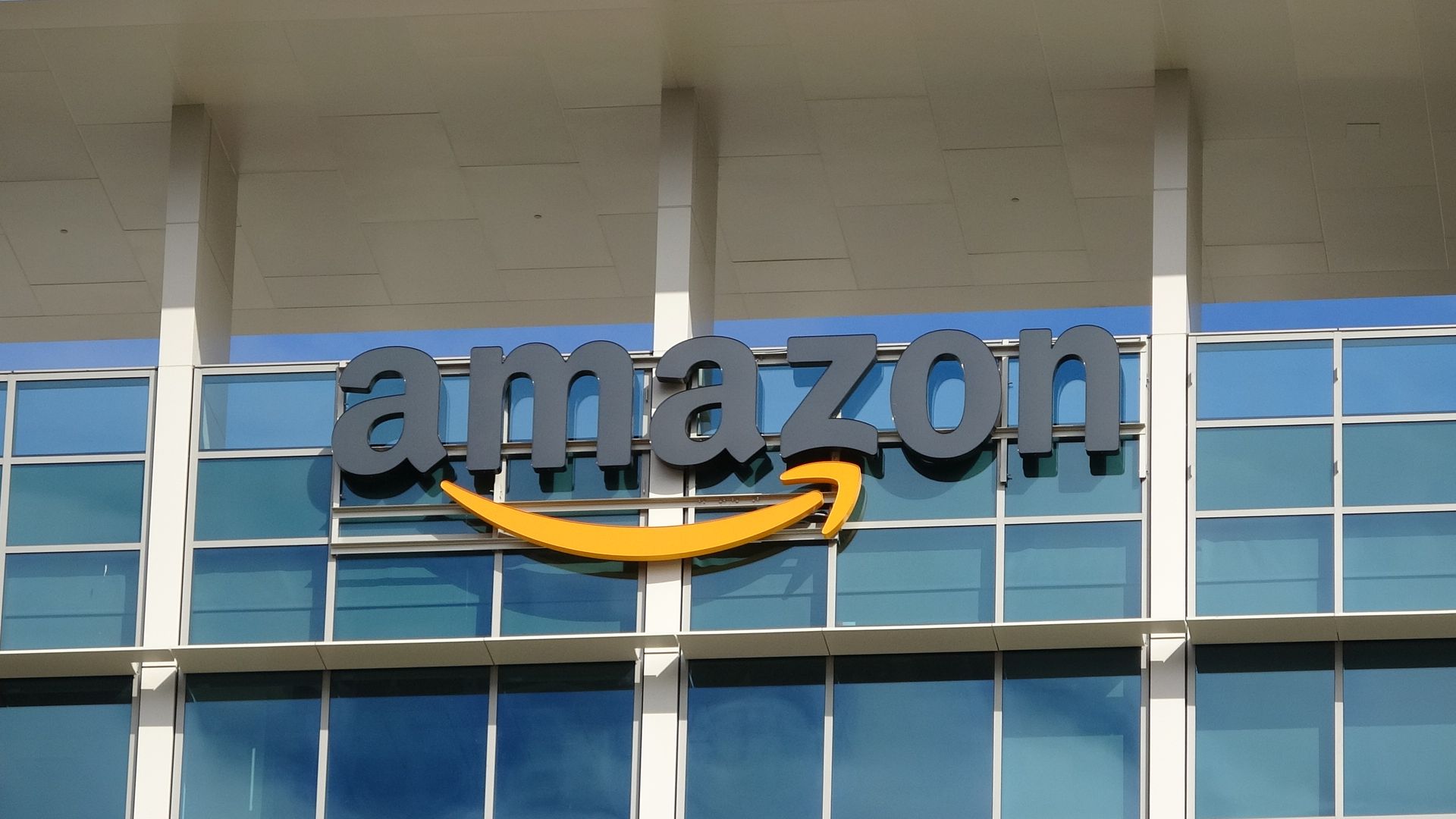| | | | | | | Presented By PhRMA | | | | Axios Vitals | | By Tina Reed ·Jul 08, 2021 | | 🔆 Good morning, Vitals readers. Today's newsletter is 987 words, or a 4-minute read. In today's edition, Axios' Bob Herman offers a look at the much broader implications over whether Pfizer is allowed to help Medicare patients pay their co-pays for a pricey heart drug. - He also offers some background on the drug at the heart of this case.
Plus, Axios' Marisa Fernandez has some good news — and, unfortunately, some bad news — when it comes to U.S. cancer death rates. | | | | | | 1 big thing: The drug pricing lawsuit that could blow up Medicare |  | | | Illustration: Annelise Capossela/Axios | | | | A federal judge will soon determine whether Pfizer can pay Medicare patients' out-of-pocket expenses for its heart medications, priced at $225,000 per year, Axios' Bob Herman writes. Why it matters: A ruling in Pfizer's favor would legalize something that is viewed as a kickback under current law and could spur a gold rush of drug companies covering Medicare copays to increase prescriptions of their expensive drugs. Where things stand: Pfizer sued the federal government last year, arguing rules prohibiting pharmaceutical companies from directly or indirectly funding patients' drug copays were unconstitutional. The other side: The Office of Inspector General has long said most copay programs (and Pfizer's specific proposals) run afoul of federal law because they function like bribes. Zoom in: Oral arguments took place last month (read the transcript). - "As soon as, for the patient and the physician, it appears that the drug is effectively free ... Pfizer is able to price the drug whatever it wants. It could say $225,000 this year, and next year it is going to increase it to $500,000, the next year to $2 million," federal attorney Jacob Lillywhite said.
- Pfizer's lawyers argued the copay program should be allowed in part because "there is no other FDA-approved drug for this condition." After the judge asked if the copay program would still be legal if another drug treating the disease were approved tomorrow, Doug Hallward-Driemeier, an attorney representing Pfizer, said it "would not protect Pfizer to the same extent."
The bottom line: "If this is legal for Pfizer, Pfizer will not be the only pharmaceutical company to use this, and there will effectively be a gold rush until Congress amends the statute," Lillywhite said. Go deeper. |     | | | | | | 2. The ascent of a $225,000 heart therapy |  Data: Company documents; Chart: Axios Visuals The heart medications at the center of the lawsuit — Vyndaqel and Vyndamax — generated $1.3 billion of global revenue last year for Pfizer and already brought in $453 million in the first quarter of this year, Bob writes. Between the lines: The drugs, which both have the active ingredient tafamidis, have a complex history. - Pfizer acquired the company that developed tafamidis, FoldRx Pharmaceuticals, in 2010.
- Pfizer then got the drug through a pivotal phase 3 trial and won FDA approval in 2019 for treatment of a form of cardiomyopathy known as ATTR-CM. The FDA originally rejected the drug in 2012.
- Researchers say an annual price of $16,500 would match the drug's benefits. The U.K. won't cover tafamidis due in large part to the price. Pfizer does not disclose the drug's net price after rebates.
Share this story. |     | | | | | | 3. Digital health funding balloons |  | | | Illustration: Sarah Grillo/Axios | | | | The money was flowing in digital health in the first half of this year, already outpacing funding rounds in the entirety of 2020, according to a new report from Rock Health. The big picture: Digital health funding is accelerating — in the total number of deals and in size. For instance, in the first six months of 2021, $14.7 billion in funding went to companies in 372 rounds. - That is up from $14.6 billion in 2020 on 460 deals. It's also up from $7.7 billion in 2019 on 383 deals.
- The average deal size in the first half of 2021 was $39.6 million in funding with 48 mega-rounds or rounds of $100 million or more.
- The average deal size in 2020 was $31.7 million with a total of 44 mega-rounds and the average deal size was $20.1 million with a total of 11 mega-rounds in 2019.
Among the largest rounds in the first half was $540 million in a Series F round by weight loss company Noom. It was also one of the largest single rounds in digital health history, Rock Health said. |     | | | | | | A message from PhRMA | | Out-of-pocket costs don't have to be out-of-this-world confusing | | |  | | | | The way insurance covers your medicine is too complicated. What you pay out of pocket for medicines should be more transparent, more predictable and more affordable. Because the system should work for patients. Not the other way around. Get the facts. | | | | | | 4. Amazon stumbles with insurers |  | | | Photo: Smith Collection/Gado via Getty Images | | | | Amazon is struggling to convince insurers, including Aetna and regional insurers like Premera Blue Cross, to pay for its medical services known as Amazon Care, Business Insider reports. Why it matters: Amazon's regularly grabs headlines as a potential industry disrupter. But, at least when it comes to health care, it is still often outgunned. State of play: Amazon Care launched pilots in Seattle, with both in-person and virtual options, in 2019. In March, the company announced it was expanding its telehealth offerings by this summer. - In May, Amazon Care signed its first employer customer.
- Amazon has run into problems in discussions with payers over how it wants to be paid, per Business Insider.
|     | | | | | | 5. Some wins — and losses — against cancer |  Reproduced from a National Cancer Institute report; Chart: Axios Visuals Death rates for lung cancer and melanoma continued to drop for men and women in the U.S. between 2014 and 2018, Axios' Marisa Fernandez writes from an annual report by the National Cancer Institute. Yes, but: For several other major cancers, however, like colorectal, breast and prostate, death rates increased or improvements stalled. Be smart: The analysis observes cancer rates and deaths up to 2018. But since last year, doctors have expressed concern the pandemic will lead to an uptick in cancer incidence and deaths, Marisa writes. - The National Cancer Institute estimated there will likely be 10,000 additional deaths over the next decade due to the drop in screening and treatments of breast and colorectal cancer during the pandemic.
|     | | | | | | 6. 1 creepy thing: Data harvested from pre-natal tests |  | | | Illustration: Sarah Grillo/Axios | | | | Here's a lede that sounds like the plot of a science fiction novel: - "A Chinese gene company selling prenatal tests around the world developed them in collaboration with the country's military and is using them to collect genetic data from millions of women for sweeping research on the traits of populations," Reuters reports.
Why it matters: As Axios' Caitlin Owens writes, the bank of genomic data being built and analyzed by the company, BGI Group, could lead to military and economic advantages for China, U.S. government advisors warned earlier this year. - "The technology could propel China to dominate global pharmaceuticals, and also potentially lead to genetically enhanced soldiers, or engineered pathogens to target the U.S. population or food supply," Reuters writes.
Of note: Reuters reports the tests are marketed in Germany, Spain and Denmark, as well as in Britain, Canada, Australia, Thailand, India and Pakistan. But they are not sold in the U.S. |     | | | | | | A message from PhRMA | | Out-of-pocket costs don't have to be out-of-this-world confusing | | |  | | | | The way insurance covers your medicine is too complicated. What you pay out of pocket for medicines should be more transparent, more predictable and more affordable. Because the system should work for patients. Not the other way around. Get the facts. | | |  | | It'll help you deliver employee communications more effectively. | | | | | | Axios thanks our partners for supporting our newsletters. If you're interested in advertising, learn more here.
Sponsorship has no influence on editorial content. Axios, 3100 Clarendon Blvd, Suite 1300, Arlington VA 22201 | | | You received this email because you signed up for newsletters from Axios.
Change your preferences or unsubscribe here. | | | Was this email forwarded to you?
Sign up now to get Axios in your inbox. | | | | Follow Axios on social media:    | | | | | |










No comments:
Post a Comment